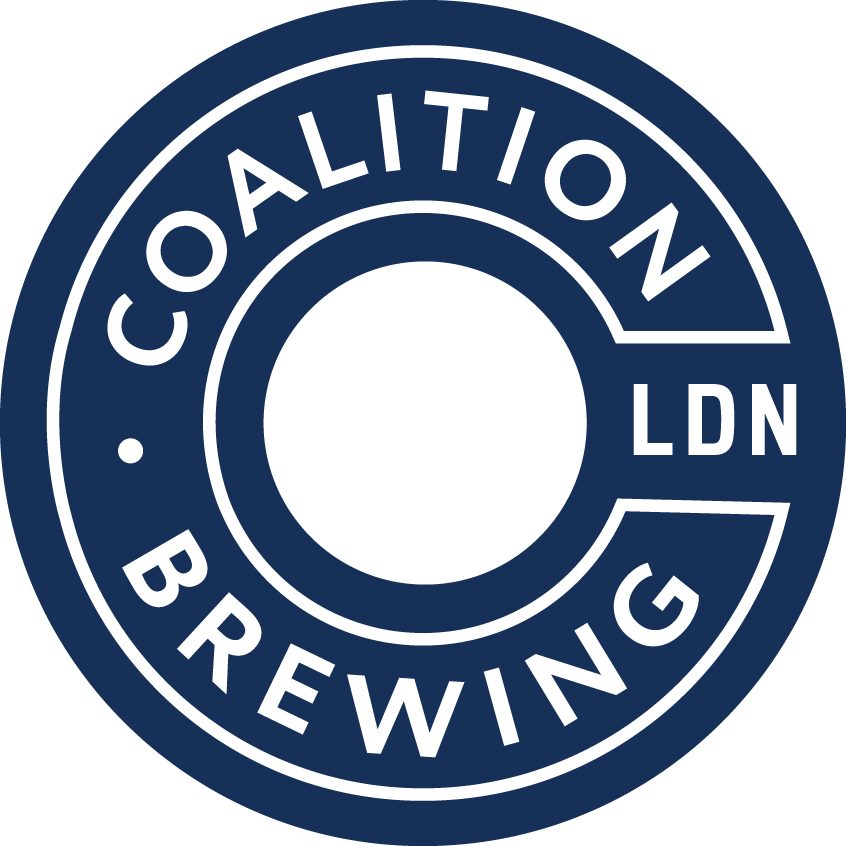Gambling and Taxation in the United Kingdom
- March 2022
- 5 minutes
Whether you only gamble a few pounds per year or are a world-renowned poker player, the United Kingdom is a fantastic place to call home. Not only is gambling completely legal and regulated in the UK, but you will be able to keep any winnings. Although it may appear difficult to believe, gambling winnings in Scotland, Wales, Northern Ireland, and England are tax-free. HM Revenue and Customs, as one might expect, has no reason to complain, as they claim a sizable share by levying duties on real money gambling operators. Continue reading to learn everything there is to know about the tax situation in the United Kingdom.
 Is Gambling Taxable In The UK?
Is Gambling Taxable In The UK?
No, gambling is not taxed in the United Kingdom. While players in some countries, such as the United States, France, and Macau, must pay gambling taxes ranging from 1% to 25%, bettors in the United Kingdom have the option of keeping their entire winnings. In fact, both online and offline gamblers in the United Kingdom do not have to worry about taxes. If you’ve been gambling for a while, you may recall dealing with betting duties in the past, but Gordon Brown, the Chancellor of the Exchequer at the time, abolished that tax in 2001. The government was effectively forced to enact several changes as a result of the sudden rise and perceived threat of offshore betting earlier this century. Yet this move was just one of many important developments. The government also passed the Gambling Act 2005, established the UK Gambling Commission, and started regulating online casinos.
Did you know that the UK government makes a fortune from gambling? Her Majesty’s Revenue and Customs collected £2.9 billion in gaming-related duty in the 2017-18 fiscal year alone. Although this figure includes lotteries, betting, and both live and remote gaming, it is still astronomical. A large portion of that revenue comes from the 15% tax levy that gambling operators must pay. While you do not have to pay taxes whether you win or lose, the government does tax the profits of betting shops, poker rooms, casinos, and other related establishments. Even though players do not pay these fees directly, they are factored into the odds in many ways. Nonetheless, it’s nice that you can concentrate on playing your favourite games instead of dealing with complicated tax forms.
 Placing Your Bets Offshore
Placing Your Bets Offshore
If you’ve gambled online, you’ve likely noticed that the industry continues to evolve. That’s true whether we are talking about the quality of the games, technological aspects like mobile betting, or regulatory and tax issues. As you might know, many of the sites that operate in the United Kingdom are based offshore. Some of these offshore operations were originally based in Britain, but quickly realised they could reduce their tax burden by locating their servers elsewhere and incorporating in a tax-free jurisdiction.
In order to counteract these moves, the UK Gambling Commission now requires all sites that welcome British customers to be fully licensed, whether they are physically based in Britain or elsewhere. In addition, these sites must also pay the same 15% tax as their British counterparts. Of course, as a player you won’t have to deal with these taxes. Nevertheless, a level playing field reduces the odds of the government making changes that negatively impact bettors.
 Are Professional Gamblers Taxed On Their Winnings?
Are Professional Gamblers Taxed On Their Winnings?
No – HM Revenue and Customs do not make a distinction between casual and professional players. Even if this may be subject to change in the future, at the present time gambling isn’t a recognised trade.
If you are a professional poker player, chances are you’ve already consulted with an accountant. Even so, there are a couple of points to consider. If you play outside of Britain, you may have to deal with local taxes. For example, if you win money in Las Vegas you could be subject to a federal withholding tax, although you can often apply for a refund as a non-resident. Also, if you become a poker celebrity and get paid for public appearances or representing an online cardroom, you could be subject to taxes but not on your winnings.
 Keeping Records of Your Play
Keeping Records of Your Play
Although gambling income is not required to be declared on your tax return in the United Kingdom, successful poker players and other professional bettors frequently keep personal records of their wins and losses. While it may appear that keeping a performance log is a waste of time because your winnings are tax-free, there are a couple of advantages to doing so.
It’s always a good idea to keep track of how much you spend and win while gambling. Don’t you want to know how much profit you’ve made after deducting your losses and other costs such as travel, meals, and lodging? If gambling is your sole source of income, driving to the store in an Aston Martin could raise several red flags. Having gambling records will be ample proof that you aren’t hiding income from taxable sources.
 Is gambling income taxable?
Is gambling income taxable?
If you are resident of the United Kingdom, your gambling income won’t be taxed. Unlike other countries such as the USA you will be free to keep whatever you win in Britain even if you are professional poker player. At the same time, you can’t deduct any losses you might accrue.
 Is Professional Gambling Considered Trading for Tax Purposes?
Is Professional Gambling Considered Trading for Tax Purposes?
Is an on-line professional gambler still just operating a system by habit or are they trading? Provided that the “pro-punter” is not carrying on an organised activity to make profits out of the gambling public, it is considered this will not amount to trading.
The betting exchanges have produced a number of sophisticated pro-punters who approach their work on a scientific, well-researched basis. This is not “irrational” but the profit is “tax free”. For tax purposes there is no distinction between recreational and non-recreational players. How does the pro-punter deal with the issues of tax compliance?
The safe answer has to be to make HMRC aware of the position. This can be done by simply writing to the pro-punter’s local tax office stating that he or she has income from gambling and to record the details each year on a tax return. It is also important to obtain clearance from HMRC via “Code of Practice 10”.
 Are Bingo Winnings Taxable?
Are Bingo Winnings Taxable?
The short answer is no—your gambling winnings aren’t taxable, at least in the UK. Here you won’t have to pay taxes on any of your winnings or stakes. It doesn’t matter if you’ve won £100 or £1 million. This applies to all types of gambling—from bingo, to slots, to lotteries, and even horse racing. So if you win big, you can rest assured knowing that you can spend your money in whatever way you’d like.
Depending on the site you’re using, your winnings will either be paid to you in one lump sum, or as a certain amount each month. If you’ve won recently, or you frequent a particular site, casino or betting brand, you should check their Terms and Conditions—this will lay out everything you need to know should your lucky day come.
If you don’t live in the UK your winnings might be subject to a tax, so it’s important that you check in advance. For example:
- France has a 2% tax on poker cash pots.
- In Spain, you need to declare winnings as income for taxation.
- The Netherlands has a 29% tax if you win more than €454 in the lottery.
If you’re a UK citizen and you find yourself gambling abroad, you generally won’t need to worry about taxes. Most countries have treaties with the UK, so you won’t be subject to their tax requirements.
 History of Gambling Laws
History of Gambling Laws
Betting shows were first legalised with the 1960 Betting and Gaming Act, in which a tax was levied either on stakes or winnings in high street betting shops. This was charged at a whopping 9% for punters. It was abolished by Gordon Brown in his March budget of 2001.
This tax on gamblers themselves was replaced with a 15% tax on bookmakers and their gross profits at point of supply instead. This ‘point of supply’ basis meant that if a bookmaker wasn’t based in the UK, they weren’t liable however. This was a pressing concern for Brown, who feared that the UK was losing revenue to offshore gambling sites.
Indeed, an increasing number of bookmakers relocated their online operations offshore, where they would only have to pay the local tax rate on profits—which was capped at 1% in Gibraltar!
This changed in 2014, when the Gambling Act of 2005 was amended. From that point forward, the tax was reduced to 15% on all gross profits at the point of consumption, including those earned by offshore companies. Gambling operators in Gibraltar and the Isle of Man, for example, were now required to pay tax in order to obtain a gambling licence. This amendment effectively made it illegal to conduct business in the United Kingdom without a UK gambling licence.
This had a huge impact in making UK-based bookies and betting shops more competitive—increasing the growth and success of the gambling industry in the UK.
 So, Why Aren’t They Taxable?
So, Why Aren’t They Taxable?
To put it simply, it’s just easier for everyone involved to leave winnings untaxed. For example, if people are paying taxes on their winnings just like businesses do, then it would potentially be possible to claim back losses on tax returns. As you can imagine, this would be a nightmare, especially considering the fact that most people lose when it comes to gambling. After all, we all know what the 10 stages of losing at bingo are like!
 Who Exactly Pays The Tax?
Who Exactly Pays The Tax?
The casinos and bookmakers are the ones now paying the tax—this is the way they contribute to the UK’s economy. There are a variety of different taxes and gambling duties:
- General betting duty
- Bingo duty
- Machine games duty
- Lottery duty
- Gaming duty
- Remote betting duty
Before you start thinking about how tough it must be for gambling businesses, or how great it might be for you, bear in mind that they do pass these costs on to you in some way. For example, some online gambling sites have high wagering requirements or lower odds.
 What If You’re A Professional Gambler?
What If You’re A Professional Gambler?
This is backed up by the HMRC’s Business Income Manual at BIM22015. Their position is that betting and gambling don’t constitute trading:
“The fact that a taxpayer has a system by which they place their bets, or that they are sufficiently successful to earn a living by gambling does not make their activities a trade”.
Gambling winnings, therefore, remain tax-free, regardless of whether it’s your main source of income or a simple hobby. An example of this goes back as far as 1925, in which a man named Alexander Graham was taxed by Inland Revenue. Graham made a living out of betting on horses, so Inland Revenue claimed £300 from him under the 1918 Income Tax Act. This case went to court, where Graham’s lawyers argued that betting on horses couldn’t be considered a trade. The judge eventually ruled that you can’t tax “habit”.
That is not to say that professional gamblers will never be taxed. It can become a little complicated. For example, if a professional gambler receives an appearance fee for participating in a particular tournament, this would be taxable income.
 So, I Don’t Have To Worry At All Then?
So, I Don’t Have To Worry At All Then?
While your winnings aren’t taxable by any gambling laws, that doesn’t mean you don’t have to worry. After all, other taxes may still be applicable.
A problem that many lottery winners have is extra tax—particularly on the ‘bigger’ wins. Any income that you generate from your winnings could be subject to income tax—for example, income earned through investments would be subject to a capital gains tax at 18%! And that’s not all—your winnings might even be liable to an inheritance tax when you die.
Inheritance tax is levied on property or cash acquired by a gift or inheritance. The threshold for this tax is £325,000, so if your ‘estate’ is worth more than that, you’re looking at a 40% tax. While you can give your money away to people or charities, it’s still liable should you die within 7 years of the gift.
You can give away £3,000 each year tax-free to any one person, or £250 as a gift to someone as long as they’re not gifted any further. If you give more than this away and you die, it will be liable to this tax. If you live longer than the allotted 7 years, it will be exempt from the inheritance tax.
If you do end up winning big—whether it’s through bingo, the lottery or a casino—you should definitely look to a financial advisor for help on how to invest your money and how to protect it.
If you live in the UK, our tax laws mean that you can gamble tax-free, without a single worry. Generally speaking, it isn’t very likely that this will ever change—taxing gambling winnings will never be viable for the UK. After all, if you tax the income or profit made from an activity, you have to make allowances for any losses made from the same activity.















